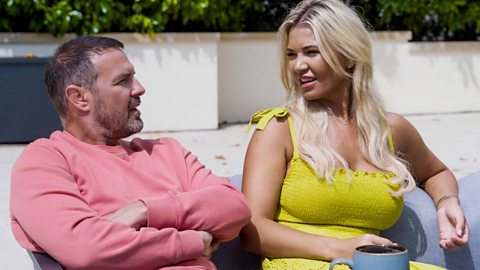As hard as we might try to avoid them, there are moments in every family where mental health is put to the test. At these times, it can be really helpful to have a support network for you and your children to turn to.
The charity Young Minds have some tips to help youтІ
Seek support from your co-parent, friends and family

If things are getting you down, itтs important to recognise this. Many people go on struggling with very difficult situations because they feel they should be able to cope, or that they donтt deserve any help.
Try talking to a family member or friend you trust to see if they can offer you any reassurance or support. They may even have had a similar experience that they can share with you. Whatever the case, itтs okay to talk about whatтs happening so donтt be afraid to reach out. If things get too much, you may be able to ask them to look after your child for a bit while you take some time to sort out your own stuff.
If you're sharing parenting responsibilities with an ex-partner, try and sort out how to deal with your childтs problems together so youтre using the same approach and can support each other.
Look after yourself

Although it can be easier said than done, try to take some time to relax. This can be something as simple as catching up with a friend, watching your favourite movie, or ordering in a nice dinner for yourself, but remember to take time out to get some fresh air and exercise. By taking steps to improve your own wellbeing, youтll be in a better place to help your child too. This ТщЖЙдМХФ article offers more tips on self-care.
Don't be too hard on yourself

If your child is having problems, try not to be too hard on yourself or blame yourself for it. It can be really upsetting and worrying if your child is having a bad time, and while it can make your relationship with them feel more stressful. Remember that youтre not a bad parent, children can often take their problems out on those closest to them.
If you, yourself had a difficult time while you were growing up, or have had your own mental health concerns, it can be worrying to think that the same thing is happening to your child. But the love and care you show them and the fact youтre trying to help can actually protect them from things getting worse. Getting help for them and perhaps for yourself too can give them the best chance of feeling better т just think of the example youтll be setting your child, and the amount of support youтll be able to give them, if they see youтre not afraid to prioritise your own mental health and wellbeing.
Helplines and services are available to help

If things are really getting you down, or you feel that your childтs issues are not getting better despite doing your best, donтt be afraid to reach out for additional support from professionals.
Asking for support from your GP and getting a referral for your child to CAMHS, or even a counselling service for yourself, is a sign of strength. Remember, you canтt help your child if youтre not being supported yourself. If you need help or advice quickly, you can also seek out support from the YoungMinds , where trained advisers will listen and talk through your concerns in complete confidence.
You can also check out organisations like and the for parent specific advice and information, while charities like Mind, Sane and Rethink may be able to help if youтre struggling with your own mental health. Whether or not you have a supportive network of family and friends around you, there are plenty of organisations who can also help.
It is important to share the burden where you can. Don't feel guilty about asking for help. One thing that has been much talked about since the start of the pandemic has been the renewed awareness of community and our need for human contact and communication. Make the most of chances to connect and embrace any opportunity to talk and share - people will welcome the chance to help you and appreciate being asked.
Tips provided by Stevie Goulding, Parents Helpline Manager for the charity Young Minds

More from ТщЖЙдМХФ Bitesize Parents' ToolkitтІ
Parents' Toolkit
Fun activities, real-life stories, wellbeing support and loads of helpful advice - we're here for you and your child.

How can I talk to my kids about their emotions? - The Super Tutors
Natalie Costa, aka 'The Child Whisperer', explains how you can talk to your child about their feelings and help them manage their emotions.

Five tips to support the after-school тmeltdownт
Expert advice on how to cope with after-school restraint collapse as a parent.

Christine McGuinness - How my autism can help me to help my kids
Christine McGuinness talks about the positives and challenges she's faced through her life as a mum since diagnosis.


